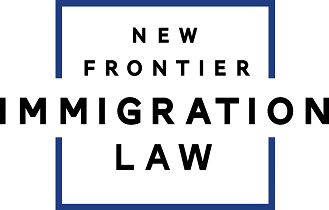
The intricate map of US immigration can hold unforeseen surprises, and sometimes, even with careful planning, you might encounter a roadblock marked “Grounds of Inadmissibility.” This term, while weighty, doesn’t necessarily spell the end of your dream of residing in the United States.
It simply means that some aspect of your background requires further review before you can move forward with certain immigration benefits, such as obtaining a Green Card. However, a Scottsdale immigration lawyer can help you overcome this challenge and potentially secure your future in the United States.
Waivers of Inadmissibility Explained by an Immigration Attorney in Scottsdale
Think of inadmissibility as a kind of “red flag” raised by immigration authorities for various reasons. Past crimes, immigration violations like overstaying your visa (leading to unlawful presence), and even certain health conditions can trigger inadmissibility. While this might feel like a dead end, remember – these red flags aren’t permanent barriers.
A waiver of inadmissibility is essentially a permission slip granted by the government upon convincing them that allowing you to stay, despite the red flag, is in the best interest of the United States. Imagine it as a carefully constructed argument, presented to ICE | U.S. Immigration and Customs Enforcement, explaining why your specific situation warrants overlooking the reason for inadmissibility.
There are different types of waivers, each targeting specific red flags, such as:
- I-601 waiver
- I-601A waiver
- I-212 waiver
- Humanitarian-based waivers
By understanding the concept, exploring different types, and seeking expert guidance, you can transform this roadblock into a stepping stone toward your goals in the United States.
For a free case review with a waiver of inadmissibility lawyer serving Scottsdale, call
Understanding the Reason for a Judgment of Inadmissibility
Several factors can trigger inadmissibility, each acting like a different thread woven into the fabric of your immigration case. Let’s unravel these threads and shed light on the most common reasons:
- Criminal Convictions. Certain offenses, like drug trafficking or violence, raise red flags for immigration authorities. However, remember, not all convictions lead to automatic inadmissibility. The nature of the crime, its severity, and your rehabilitation efforts all play a crucial role.
- Immigration Violations. Overstaying your visa, entering the country illegally, or violating previous immigration orders can land you in “unlawful presence,” another ground for inadmissibility. But don’t lose hope! Depending on the circumstances, adjustment of status options or waivers like the I-212, Application for Permission to Reapply for Admission into the United States After Deportation or Removal might be available, offering a path forward.
- Moral Turpitude Crimes. Acts deemed morally reprehensible, such as fraud or prostitution, can raise inadmissibility concerns. However, understanding the specific laws and demonstrating remorse or reformation can be key to overcoming this hurdle.
- Health Concerns. Certain contagious diseases or health conditions can trigger inadmissibility, often due to concerns about public health. Remember, this doesn’t necessarily mean permanent barriers. Seeking medical evaluations and exploring options like humanitarian-based waivers might pave the way for a positive outcome.
Unraveling the reason behind your inadmissibility can be complex, and seeking professional guidance from an experienced removal defense immigration attorney is crucial.
What Should You Do if You or a Loved One Are Tagged As “Inadmissible”?
Receiving an inadmissibility determination can feel like a devastating blow, casting a shadow over your or your loved one’s American dream. However, instead of giving up hope, remember: this is not a dead end but a detour that requires careful navigation and the right actions. Here are six steps to help you take the first steps and stay hopeful during this challenging time.
Seek Legal Counsel and Gather Evidence
Consulting an experienced immigration attorney is crucial. They can act as your compass, analyzing the reason for inadmissibility and identifying suitable paths forward.
Depending on the type of inadmissibility, compile relevant documents. This might include medical records for health concerns, police reports for certain criminal convictions or proof of family ties for family-based migration options.
Explore Potential Solutions
Your attorney can guide you through the diverse landscape of options, including:
- Waivers. Depending on the reason for inadmissibility, seeking a waiver like the I-601, Application for Waiver of Grounds of Inadmissibility, the I-601 A for unlawful presence, or the I-212 might be a viable avenue.
- Adjustment of status. If you’ve accumulated unlawful presence but have a US citizen spouse or parent, obtaining a green card might be possible.
- Deportation defense. If you face deportation proceedings, your immigration attorney can fight for your rights and explore options like demonstrating hardship to a US citizen family member or pursuing DACA, VAWA, U-Visa, or T-Visas if applicable.
Embrace Patience and Prepare for Interviews and Hearings
If required, your attorney will guide you through the process, preparing you for potential questions and ensuring you present your case effectively. Overcoming inadmissibility can be a marathon, not a sprint, requiring steadfast patience and unwavering resolve. Stay informed about the progress of your case, maintain open communication with your attorney, and remember that consistent effort can pave the way to success.
By taking these steps, seeking expert legal counsel, and remaining hopeful, you can navigate this detour and chart a path toward a brighter future in the United States.
Our Waiver of Inadmissibility Lawyers
Talk to a Scottsdale Waiver of Inadmissibility Attorney Today
Receiving an inadmissibility determination can feel like encountering a formidable roadblock on your journey to achieving your American dream. However, navigating this complicated legal landscape doesn’t have to be a solitary journey. At New Frontier Immigration Law, our experienced Scottsdale waiver of inadmissibility attorneys are dedicated to empowering individuals and families facing this challenge.
Whether you or a loved one is grappling with inadmissibility due to past offenses, health diagnoses, or other grounds, our compassionate legal team can provide insightful guidance and unwavering support. Contact our Scottsdale waiver of inadmissibility attorneys today and take the first step towards a brighter future in the United States.


